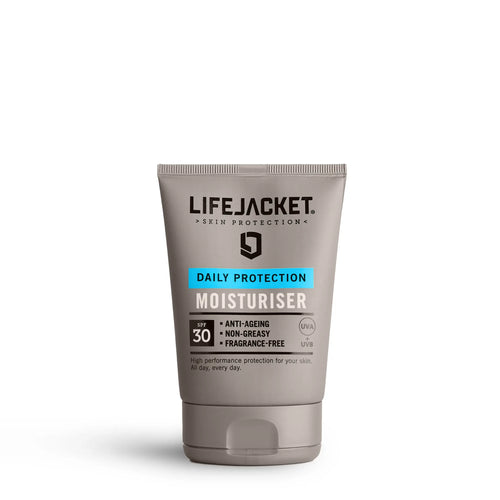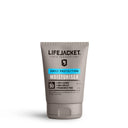It’s not summer, I don’t need sunscreen
Ultraviolet light is an invisible form of radiation emitted by the sun. It reaches your skin every day and is responsible for skin damage, from wrinkles through to skin cancer. 95% of all UV rays that reach your skin are UVA rays. This bit is key: UVA levels are broadly constant throughout the year i.e. they're just as strong in December as they are in June. UV is responsible for 90% of melanoma skin cancers so year round protection is critical. |
The sun's strongest when it’s hot, so I’ll skip the sunscreen today thanks
It’s not about how hot it is. It’s about how strong the UV rays are at a given point in time, on a given day. It is quite easy to be caught off-guard and burn during daylight hours, wherever you are. If in doubt, always protect your skin when outdoors. |
It’s cloudy, I’m not wearing sun screen
Cancer-causing ultraviolet rays reach the earth every day, from the sun. 80% of these rays can pass through cloud cover, whether that’s in the summer or the winter. |
I’m not on holiday, I’m at home. The sun isn’t strong enough here so I don’t need skin protection
Too many people think of sunscreen as a holiday purchase. Damaging ultraviolet rays from the sun reach the earth, every single day. Wherever you are. |
I need Vitamin D so I don’t want to wear sunscreen right now
It’s true that sunlight is required to synthesise and produce vitamin D. However, for most people, brief exposure to the sun (10-15 minutes) allows the body to make enough so there’s no need to risk sunburn. Once your body has produced enough Vitamin D, it breaks down any excess so spending longer in the sun adds nothing. Research also shows that the body can still metabolise Vitamin D while you wear sunscreen. Don’t forget, it's also possible to get Vitamin D from certain foods or supplements. |
Sunscreen is the best way to protect me from too much sun
Without wishing to sound like total killjoys, the ultimate protection from the sun is shade. Clearly, that’s not a way to live life. But it becomes an option when the sun is too much for you or other protection is limited. At all other times, think about UPF 50+ clothing, a hat and UV-blocking sunglasses supported by sunscreen. |
I’ve put on sunscreen once already today so don’t need any more
Once is not enough. Even if it says once-a-day on the label, regulators are cracking down on these claims. All sunscreens must be re-applied regularly. Some products rub, wash or sweat off more easily than others. A fresh application every 2 hours is a good rule of thumb. Set the alarm on your phone to remind you. |
I’m wearing a t-shirt so I won’t burn
Not all fabrics are created equally. The colour, cloth and weave will determine if the clothing can truly block ultraviolet rays from reaching your skin. A white, cotton t-shirt offers the equivalent protection of SPF 5. Darker colours are better. Sun protective (UPF) clothing is best. |
The more expensive the sun cream, the better it is
Absolutely not true. We recommend two things: (1) SPF 30 as a minimum, and, (2) a product with either the UVA circle symbol or 4/5* UVA rating. Be ultra vigilant and make sure any product you use has both of these marked on the pack. This is more important than price. |
Sunscreens need to protect you from infrared rays too
Some sunscreens now offer protection from infrared rays. When it comes to skin cancer risk, it’s UV rays that matter. There is no need to spend extra on infrared protection unless you want to. |
I need this tube to last two weeks so will just use small amounts each time
People never use enough. The rule of thumb is 5ml per body part. This is the amount required to provide you with the level of protection stated on the packaging. Think of 5ml as a teaspoon. So, a teaspoon for your head. The same for one arm. The same for one leg. And so on. |
Let’s save money and use the sun cream we have left in the drawer from last summer
Look at the back of the bottle for the jar symbol. There will be a number next to it. That’s the number of months it lasts, once opened. As a rule of thumb, throw away sunscreen 12 months after it was first opened. Some ingredients become inactive and ineffective beyond that. For relatively small money, buy a new one and avoid immeasurable risks. |
I hate sun creams. They’re all so greasy. I’d rather take the risk
We agree that many products are too greasy for men’s taste. We don't agree you should take the risk. That’s why we developed the LifeJacket range. |






